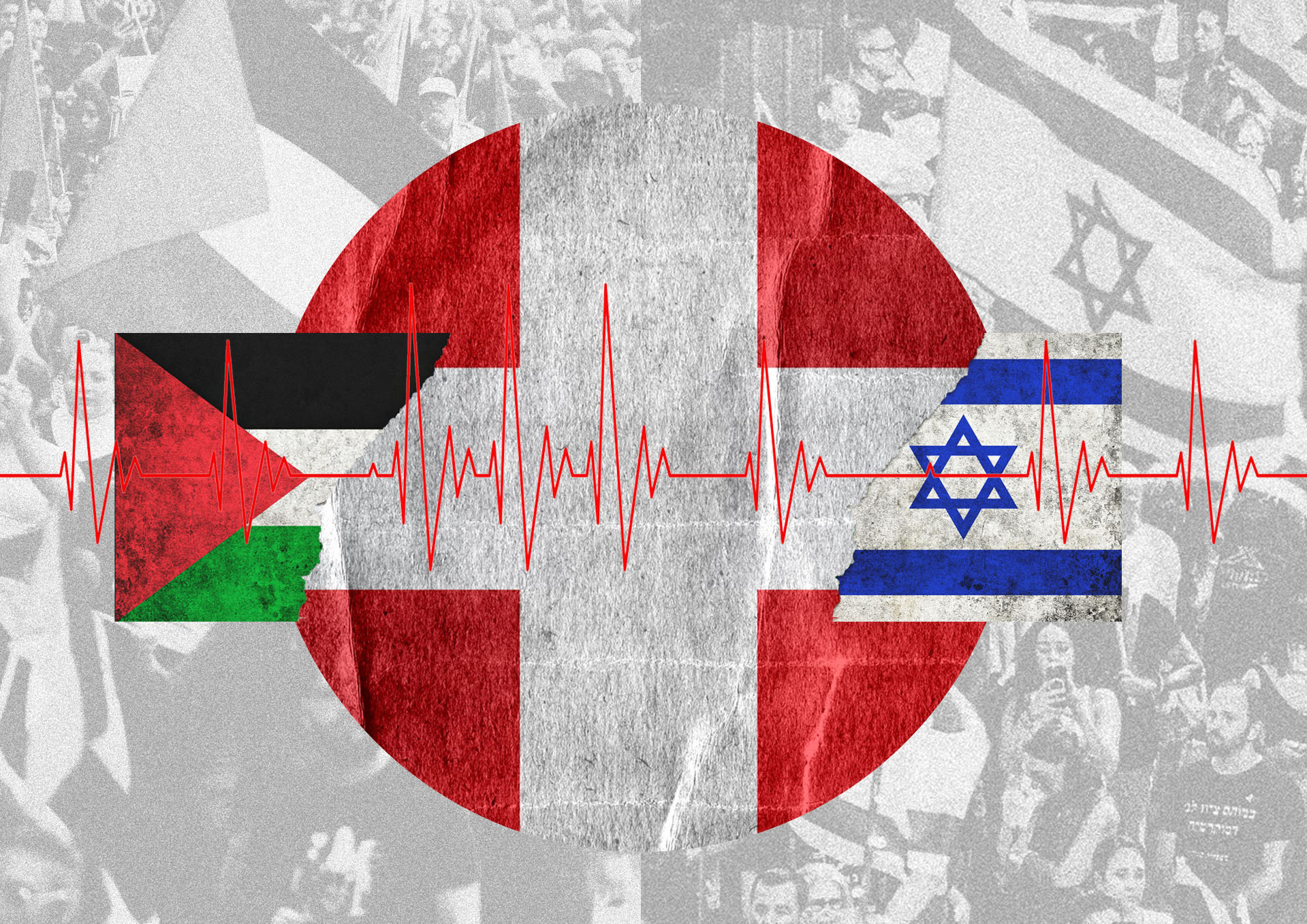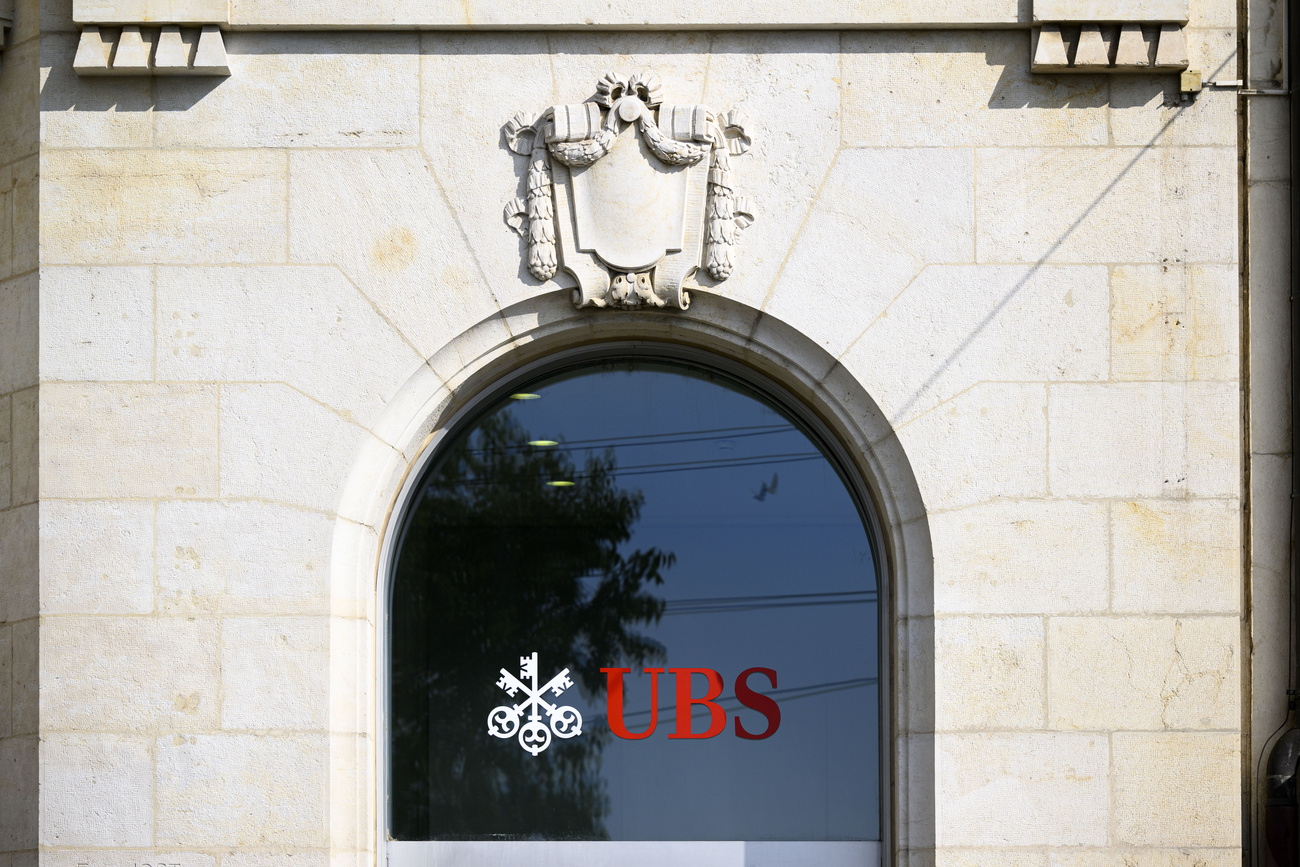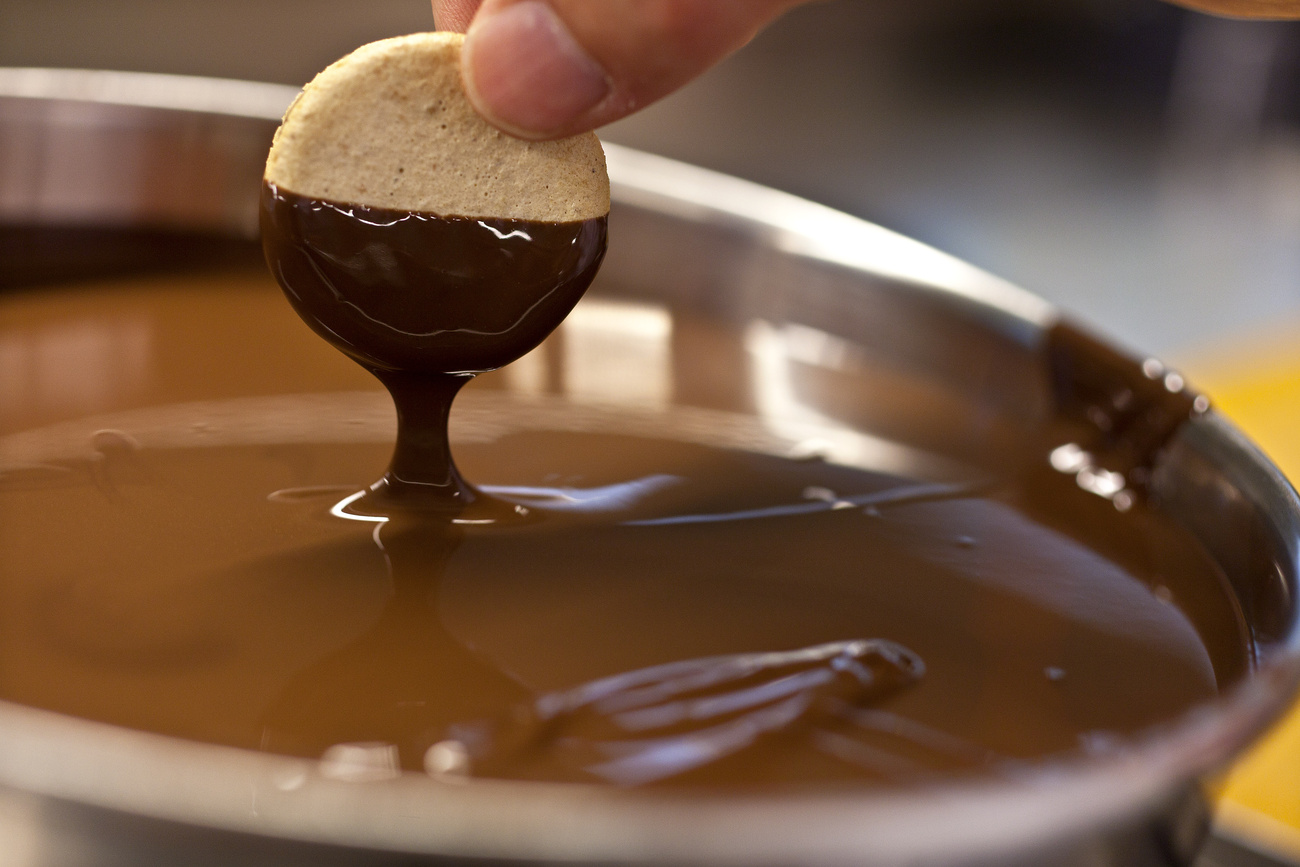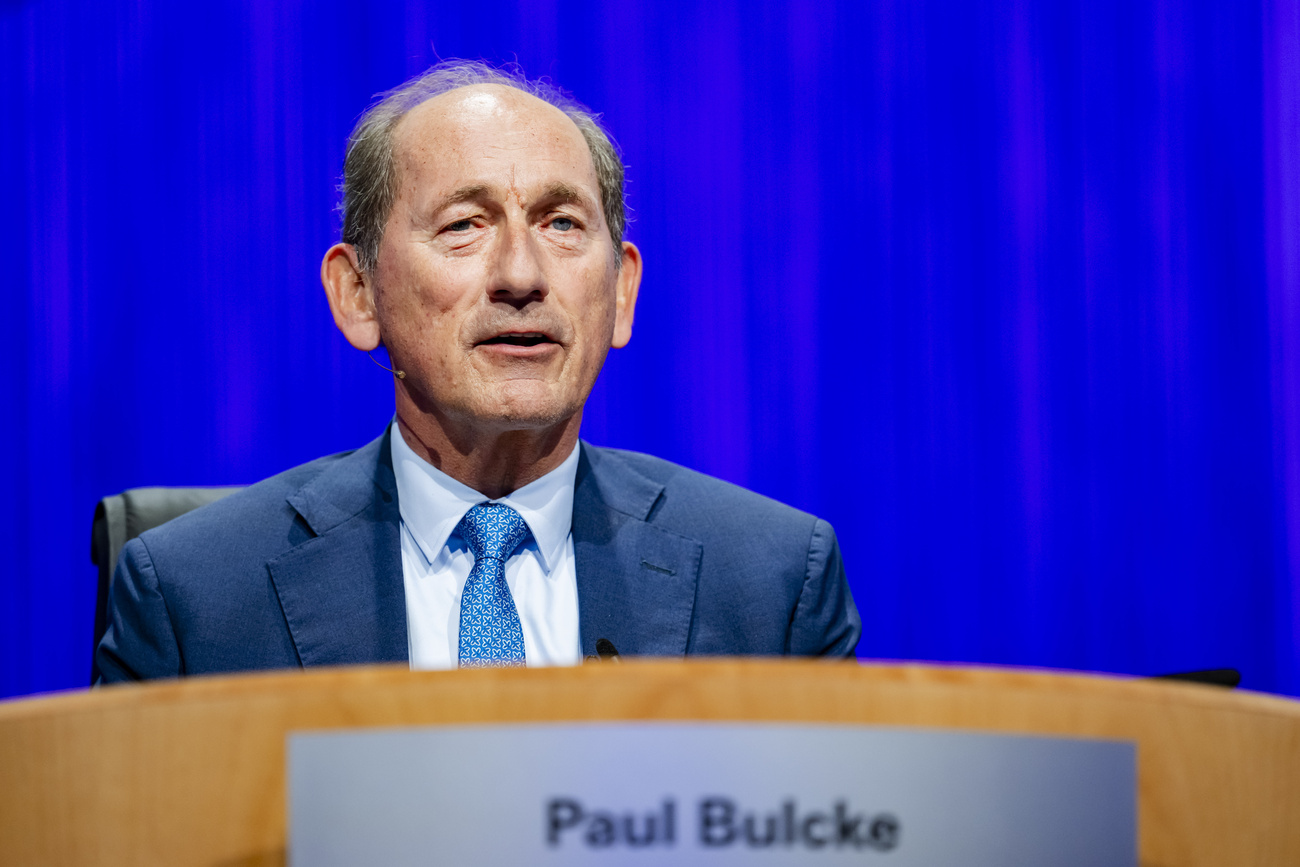
‘Switzerland was a very closed country’

Tatiana Decoppet is an architect who designed many buildings in Bern and elsewhere in the country. She has clear memories of Switzerland before the war, of ration cards and how tough life was at that time.
I take the tram to Wabern, a green suburb of Bern at the foot of the Gurten hill. I turn into one of its small streets and approach a typical two-storey Bernese house, with a small front terrace behind a hedge. I see a small, fragile figure, whom I recognise straight away as Tatiana Decoppet.
She leads me into the sitting room. I feel at home immediately. The room is lined ceiling-high with bookshelves, and some of the books on them are in Russian, including works by Chingiz Aitmatov, Anatoly Rybakov and Leo Tolstoy.
All about my father…
At the age of 86 Decoppet is as alert as ever. She does not move quickly, but she is steady on her feet. I ask her where her surname comes from: it turns out that it was her husband’s name, and that he was the grandson of the government minister Camille Decoppet (1862-1925).
At first she is unwilling to talk about herself, but has plenty to say about her father, Viktor Schütz (1886-1958), who graduated with a degree in zoology from the natural sciences department of the faculty of physics and mathematics of St Petersburg university. She speaks in German, coloured by her native Bernese dialect.
The 1917 revolution found him in Paris. The upheavals in Russia meant the loss of his home. He had to start a new life, most of which he spent in Switzerland, in Bern. “Here are some letters written by my father,” says Decoppet , showing me some yellowing pages. They are addressed to Mikhail Rimsky-Korsakov (1873-1951), the son of the Russian composer, himself an entomologist.
Ashamed of her name
Here is what Schütz wrote to Rimsky-Korsakov on June 19, 1923: “Life isn’t particularly good here [in Bern]… You may not have much time for scientific work, but I don’t have any at all. All I do is draw up… microbiology and parasitology tables. That’s what I live off…”
Her father hoped he would be able to return home at some point. “Life wasn’t easy in Switzerland at that time,” says Decoppet . “I remember the mother of one of my school friends saying one day that she only had 50 centimes in her purse to last until the following week.”
“When I started at senior secondary school, I was very ashamed of my name,” she recalls. “Switzerland was a very closed country, and foreigners were a rare phenomenon. We didn’t feel ‘at home’ for a very long time. I was once invited to a birthday party, where there were other pupils from my school. When the mother of one of them heard that I had gone too, she rushed along to make sure that everything was OK, because she was afraid that something might happen…”
After 1933 [when the Nazis came to power in Germany] a lot of Russian emigrés in Switzerland came out in support of Hitler. They thought he would be able to destroy bolshevism. “My father immediately broke off contact with those people. I was interested in politics, too; but I always wanted to become an architect.”
Escape across the Rhine
“There were a lot of interned troops,” she remembers. “They weren’t locked up in a camp of any sort, but could move around freely. My sister Katharina was very popular with them at dances, while I was a bit of a wallflower – but I wasn’t jealous…” She smiles, and I realise that for her it is as if all of this happened only yesterday.
Then she shows me a photo of Katharina, who died much too young. She was a teacher and a radio editor, and wrote a dissertation about the impact of Goethe on the work of Ivan Turgenev. The photo, taken in 1942, shows three people: Tatiana, Katharina, and between them a young man with a tense smile.
“He was a Ukrainian. I think his name was Boris. He was seriously wounded at the front in Russia, and captured by the Germans. They successfully treated his injuries – not because they were kind-hearted, but because they wanted to discover the best way to treat badly wounded troops suffering from hypothermia. Then he escaped from Germany across the Rhine to Switzerland.”
Fading smile
“During the war there was a huge amount of interest in Russia in Switzerland. But later it fell off: there was a lot of bad feeling over the crushing of the Hungarian uprising [in 1956].”
“The Soviet Repatriation Commission completed its work in Switzerland at the end of 1945, and there was a reception to mark the occasion at the Russian mission in Brunnadernrain Street in Bern. I went with my father, although at first he hadn’t wanted to go. There was a veritable feast laid out. There were a lot of Swiss people there. And they simply hurled themselves at the table – I really felt ashamed. But they had probably been starving – after all, Switzerland had had rationing during the war too…”
She smiles again, but then the smile fades. “Almost all the soldiers went home. Including Boris. Of course, they all ended up in Siberia, in camps…” She falls silent.
I ask her about her work as an architect. She happily gets out her folders and starts showing me her neatly arranged plans.
Her last project
“This one is now the embassy of the Principality of Liechtenstein in Bern. It used to be the villa of the German industrialist Sulzer.” She carefully goes through the sheets in the folder, and I glimpse the titles on them: “Liechtenstein Embassy, Floor 1… Floor 2…” For a spy during the Cold War this kind of material would have been worth its weight in gold.
And here’s another building: a restaurant situated on the lake shore in the little town of Spiez, not far from Bern. She is willing to talk for ever about her projects: private villas, office complexes, restaurants… Combining practicality with elegance, all these buildings unobtrusively shaped the face of Bern in the middle of the last quarter of the 20th century. And in other places too.
She shows me a photo of a villa on the shore of Lake Geneva. “It was commissioned by a British businessman. When everything was ready, I asked him how he liked it. And I got a ‘very British’ answer: ‘My personal architect would be satisfied!’”
And what was her very last project? She suggests I take a look for myself. We cross the narrow corridor and find ourselves – in the kitchen. “Two years ago I completely rebuilt this area. The wall used to be here” – and with a professional sweep of the hand she indicates exactly where it was. “I took it down and that gave me much more space.”
When we say goodbye, she shows me a picture frame on the wall. Under the glass, as was the custom a hundred years ago, are faded photos of people and buildings, put together to form a collage. The walls are filled with their voices, which turn the house into a home.
Tatiana Decoppet’s mother, Paula Oswald, was born in Bremgarten in canton Bern. The family moved to Ticino for the sake of Paula’s father’s health; he was a doctor.
Paula grew up in Ticino but later returned to Bern. She worked at the Institute of Hygiene at Bern University, where she met Viktor – the father of Tatiana.
Tatiana’s husband, Jean-Pierre Decoppet, was the grandson of government minister Camille Decoppet (1862-1925). Like Tatiana, Jean-Pierre was also an architect. The couple collaborated on a number of projects.
(translated from Russian by Julia Slater)

In compliance with the JTI standards
More: SWI swissinfo.ch certified by the Journalism Trust Initiative


























You can find an overview of ongoing debates with our journalists here . Please join us!
If you want to start a conversation about a topic raised in this article or want to report factual errors, email us at english@swissinfo.ch.